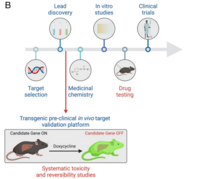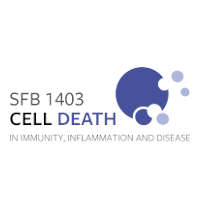A preclinical platform for assessing antitumor effects andsystemic toxicities of cancer drug targets.

Abstract
Anticancer drug development campaigns often fail due to an incomplete understandingof the therapeutic index differentiating the efficacy of the agent against the cancer andits on-target toxicities to the host. To address this issue, we established a versatile pre-clinical platform in which genetically defined cancers are produced using somatic tissueengineering in transgenic mice harboring a doxycycline-inducible short hairpin RNAagainst the target of interest. In this system, target inhibition is achieved by the additionof doxycycline, enabling simultaneous assessment of efficacy and toxicity in the sameanimal. As proof of concept, we focused on CDK9—a cancer target whose clinicaldevelopment has been hampered by compounds with poorly understood target specific-ity and unacceptable toxicities. We systematically compared phenotypes produced bygenetic Cdk9 inhibition to those achieved using a recently developed highly specificsmall molecule CDK9 inhibitor and found that both perturbations led to robust antitu-mor responses. Remarkably, nontoxic levels of CDK9 inhibition could achieve signifi-cant treatment efficacy, and dose-dependent toxicities produced by prolonged CDK9 suppression were largely reversible uponCdk9restoration or drug withdrawal. Overall,these results establish a versatile in vivo target validation platform that can be employedfor rapid triaging of therapeutic targets and lend support to efforts aimed at advancingCDK9 inhibitors for cancer therapy.
Read more at PNAS 2022 Vol. 119 No. 17 e2110557119
